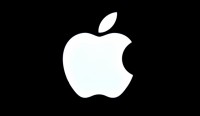Apple has revised its App Store review guidelines used to curate iOS/iPadOS, tvOS, watchOS, and macOS App Stores, most notably, now allowing developers to serve ads via push notifications. In past guidelines, Apple specifically said that push notifications should not be used for “advertising, promotions or direct marketing purposes.” The revised guidelines also expand the definition of a spam app and state that legal entities of services in “highly regulated fields” should submit the app rather than individual developers.
Ars Technica reports the new guidelines state that, “Push Notifications must not be required for the app to function and should not be used to send sensitive personal or confidential information.” They can, however, be used “for promotions or direct marketing purposes” if the customer has “explicitly opted to receive them via consent language” displayed in the app’s UI , with a method to opt out.

Pixel Envy writer Nick Heer, “noted that Apple was already failing to enforce the original language, so this seems like capitulation to what some developers have been doing for a while, perhaps in response to difficulty policing this consistently.” He also stated that, because there is no “pre-baked way for developers to sort between types of notifications,” some developers may decide it is “too much trouble to develop a solution to delineate between message types, and therefore will simply stop serving ads via notifications.”
Starting April 30, Apple told developers “that all new apps must be submitted using the iOS or iPadOS 13 SDK.” That date is also the deadline for offering “other universal sign-on services.” Apple’s review guidelines “stipulate that developers must treat users with respect when responding to reviews in the App Store … and may no longer use custom demands or suggestions that users review the app and instead ‘use the provided API’.”
Fortune-telling and dating apps, it added, will be rejected “unless they provide a unique, high-quality experience.”
Apple also clarified that “apps that provide services in highly regulated fields (such as banking and financial services, healthcare, and air travel) or that require sensitive user information should be submitted by a legal entity that provides the services, and not by an individual developer.” According to CNBC, four developers now “claim Apple is rejecting some apps related to the coronavirus that aren’t coming from trusted orgs like hospitals or governments in order to prevent the proliferation of apps that could spread misinformation.”
9to5Mac adds that, according to Apple, “77 percent of all Apple devices shipped in the last four years are running iOS 13,” including 79 percent with iPadOS 13. That underlines the importance for “developers to update their apps with the latest technologies available.” With iOS 13, apps can offer “features such as Dark Mode, ARKit 3, Core ML 3, and more.” Apple also “requires developers to prepare their apps to be fully compatible with all currently supported devices, including the iPhone 11 Pro Max and the new 7th generation iPad.”
The full App Store review guidelines are available here.

No Comments Yet
You can be the first to comment!
Sorry, comments for this entry are closed at this time.